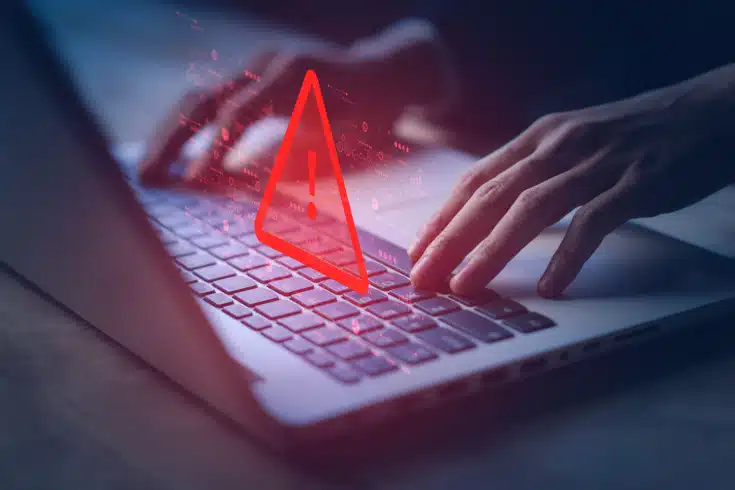Understanding YouTube's 5 Prohibited Activities: What are the 'Community Guidelines'? Things You Need to Know to Avoid Account Suspension

YouTube has what is known as the “Community Guidelines[ja].” These serve as a set of criteria to determine whether the videos posted are appropriate for the YouTube platform, and they apply to all types of content on YouTube, including video content, comments, links, and thumbnails.
It is important to be aware that violating the Community Guidelines can result in the suspension of your channel (i.e., account).
Here, we will provide a detailed explanation of the five prohibited activities under the YouTube Community Guidelines.
The Five Prohibited Categories Under YouTube’s Community Guidelines
Under the general terms of service for YouTube, the Community Guidelines specify the types of content that are prohibited, which are divided into the following five categories:
- Spam and Deceptive Practices
- Sensitive Content
- Violent or Dangerous Content
- Regulated Goods
- Misinformation
Related article: A Lawyer Explains Cases That Are Likely to Violate YouTube’s Terms of Service[ja]
Community Guidelines Prohibited Content #1: Spam and Deceptive Practices

In security terms, ‘spam’ refers to nuisance activities. On YouTube, content intended to mislead other users, or to commit fraud, spam, or deception, is prohibited. Specifically, the following types of content are banned:
- False engagement
- Impersonation
- External links
- Spam, deceptive practices, and scams
- Playlists
- Other policies
The ‘Policy on False Engagement’ prohibits artificially inflating view counts, likes, comments, or other metrics, as well as content that solely aims to draw in viewers for the purpose of engagement (views, likes, comments, etc.).
The ‘Policy on Impersonation’ bans content that aims to impersonate another person or channel. YouTube also protects the rights of trademark owners, so channels or content within channels that cause confusion about the source of the advertised products or services may be prohibited.
The ‘Policy on External Links’ prohibits links that lead to websites with content that violates the Community Guidelines. This includes links to pornography or websites and apps that install malicious software.
While affiliate content does not violate YouTube’s Terms of Service, accounts that predominantly post affiliate content in large volumes may be in violation of the spam policy.
The ‘Policy on Spam, Deceptive Practices, and Scams’ prohibits content that abuses the community with spam, scams, or deceptive practices, or that primarily aims to deceive other users into moving to another site. Videos that solely encourage viewers to subscribe to a channel, call for mutual subscriptions (‘Sub4Sub’), or sell ‘likes’ are also banned.
The ‘Policy on Playlists’ states that playlists that include content prohibited by YouTube will be considered a violation of the Community Guidelines.
Under ‘Other Policies’, the policy on dormant accounts states that accounts that have not logged into the site for more than six months may be returned to YouTube without notice.
The policy on incitement of Terms of Service violations states that content posted to encourage other users to violate YouTube’s Terms of Service will be removed, and the account may be suspended.
Content that has been previously removed for violating YouTube’s Terms of Service, content created by currently restricted creators, or content created by creators who have been suspended under the same Terms of Service, if posted, will be removed, and the account may be penalized, including possible suspension.
Community Guidelines Prohibited Content #2: Sensitive Material

Due to the large number of minors among viewers and creators, YouTube places a high emphasis on the protection of minors. Content related to nudity, sexual content, and self-harm is prohibited. Specifically, this includes:
- Child Safety
- Thumbnails
- Nudity and Sexual Content
- Suicide and Self-Injury
- Explicit Language
These categories are covered.
Under the “Child Safety Policy,” YouTube prohibits content that endangers the minds and bodies of minors. Therefore, content involving minors in dangerous activities or encouraging them to engage in such activities is banned, and content that includes harmful or dangerous acts that minors might imitate may be subject to age restrictions.
Related Article: Key Points of YouTube’s Terms of Service for Entertainment Video Posting: Explained by a Lawyer[ja]
The “Thumbnail Policy” states that thumbnails and other images that violate the Community Guidelines are prohibited on YouTube. Note that “other images” include banners, avatars, community posts, and other YouTube features that contain images.
The “Nudity and Sexual Content Policy” prohibits explicit content intended to provide sexual gratification. Posting pornography can result in content removal or channel suspension.
Under the “Suicide and Self-Injury Policy,” content that promotes suicide or self-harm, causing shock or discomfort to viewers, or poses a significant risk to viewers, is prohibited.
The “Explicit Language Policy” requires that content using language deemed inappropriate for those under 18 be removed or age-restricted. Failure to do so may result in a strike against the channel.
Related Article: What to Watch Out for When Posting “Statement” Videos? A Lawyer Explains the Key Points of YouTube’s Terms of Service[ja]
Prohibited Content in Community Guidelines #3: Violent or Dangerous Content

Content that contains malicious expressions, exploitative acts, violent depictions, malicious attacks, or promotes harmful and dangerous behavior is prohibited. Specifically, this includes:
- Harassment and cyberbullying
- Harmful and dangerous content
- Hate speech
- Violent criminal organizations
- Graphic and violent content
The “Policy on Harassment and Cyberbullying” prohibits content that includes threats against individuals or targets individuals for prolonged or malicious insult based on their inherent attributes. Additionally, the exposure of personal information (such as addresses, email addresses, login credentials, phone numbers, passport numbers, medical records, bank account details, etc.) is prohibited under this policy.
The “Policy on Harmful or Dangerous Content” prohibits content that encourages dangerous or illegal acts that could lead to serious physical harm or death. Even if fake, harmful prank videos that are too realistic for viewers to distinguish must be age-restricted.
The “Policy on Hate Speech” stipulates that content promoting violence or discrimination against individuals or groups based on personalityistics such as age, disability, ethnicity, gender identity or expression, nationality, race, immigration status, religion, sex/gender, or sexual orientation will be removed.
The “Policy on Violent Criminal Organizations” prohibits content that aims to praise, promote, or support violent criminal organizations.
The “Policy on Graphic and Violent Content” prohibits content that incites violence against individuals or specific groups, or aims to shock or disgust viewers with graphic and violent imagery, audio, or pictures from situations such as traffic accidents, natural disasters, post-war scenes, post-terrorist attack scenes, street fights, or assaults.
Prohibited Items in Community Guidelines #4: Regulated Goods

On YouTube, the sale of certain items is prohibited. Specifically, this includes:
- Firearms
- Selling illegal or regulated goods and services
The “Firearms Policy” prohibits content that aims to sell firearms, as well as content that explains how to make firearms, ammunition, certain firearm accessories, or how to install such accessories.
The “Policy on the Sale of Illegal or Regulated Goods and Services” prohibits content that aims to sell or promote the use of alcohol, passwords for bank accounts, information on stolen credit cards, counterfeit documents or currency, narcotics, and other controlled substances.
Prohibited Content under Community Guidelines #5: Misinformation
Content that contains misleading information or falsehoods, which could potentially cause serious harm, is prohibited on YouTube. This has become a focus in light of the spread of fake news following the U.S. presidential elections and the COVID-19 pandemic. Specifically, this includes:
- Misinformation
- Election-related misinformation
- Medically inaccurate information about COVID-19 (Coronavirus Disease)
The “Policy on Misinformation” prohibits certain types of harmful misinformation or content that is misleading or contains falsehoods. This includes harmful treatments or cures, content that has been technically manipulated, and content that disrupts democratic processes.
The “Policy on Election Misinformation” prohibits content aimed at interfering with voting, content that promotes false claims about the eligibility of a candidate, and content that encourages interference with democratic procedures.
The “Policy on Medically Inaccurate Information about COVID-19” prohibits content that contradicts the medical information related to COVID-19 provided by local public health authorities or the World Health Organization (WHO) and spreads medically inaccurate information.
Summary: Leave YouTube Content Legal Checks to the Experts
Content and channels that do not comply with these community guidelines and policies may be removed from YouTube, so it is essential to be mindful of them when posting.
However, understanding the full scope of YouTube’s community guidelines and other policies can be challenging, and avoiding these prohibitions may not be straightforward. One approach is to enlist the services of a lawyer who is well-versed not only in the law but also in YouTube’s various policies to conduct a legal review of your content.
Guidance on Measures by Our Firm
Monolith Law Office is a law firm with extensive experience in both IT, particularly the internet, and legal matters. In recent years, we have taken on numerous advisory cases for popular YouTubers and VTubers. The need for legal checks has increased in areas such as channel management and contract-related matters. Our firm employs attorneys with specialized knowledge to address these issues.
Please refer to the article below for more details.
Areas of practice at Monolith Law Office: YouTuber & VTuber Legal Services[ja]
Category: Internet





















